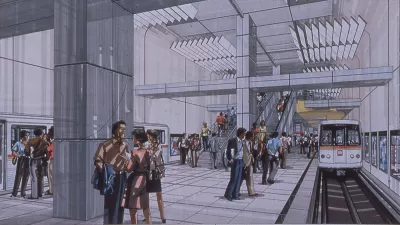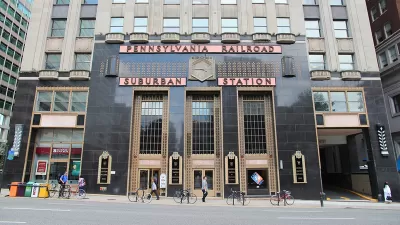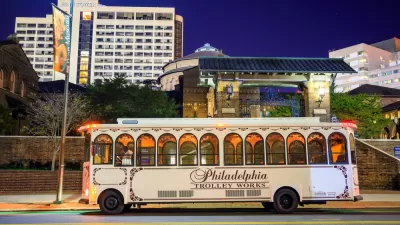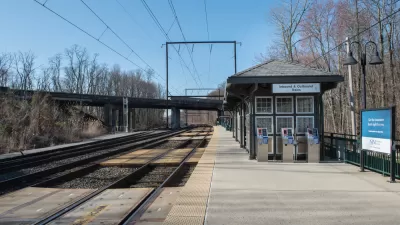In PlanPhilly, a discussion on Jarrett Walker's brand of humanities-infused transit planning. The wonky stuff is all well and good, but in the end it's all about simple access and freedom of movement.

"'Frequency is freedom,' said Jarrett Walker, earnestly in a philosophy lecture disguised as a talk on transit planning." [...] "'We all have a sense about freedom and imprisonment—It's about not being able to move. We are all in a prison, physically speaking, where the walls are where we can get to in a reasonable amount of time.'"
Jim Saksa writes about Walker's approach to transit planning, emphasizing the human dynamic before getting technical. For one thing, Walker insists on distinguishing between the "choice" rider (someone who has another option) and the "dependent" rider (somebody who must take the bus). "Imagine what kind of service the dependent bus rider would want, and deliver that, rather than trying to dream up a service for the choice rider."
Walker tends to eschew ridership predictions and overly-complex models. "It may be my philosophical training: I start with skepticism. [...] I start with what I know. That's why I start with geometry—I'm sure about that, and in a way that I'm not sure with psychology or human behavior."
Saksa suggests that SEPTA can take several lessons from Walker. "First, Walker emphasized the importance of maps—particularly frequency maps—in conveying the freedom offered by a transit system to its potential riders. Second, Walker noted that straight routes aligned in grid systems maximize a rider's abundance of access."
Read more from Jarrett Walker at his blog, Human Transit.
FULL STORY: Jarrett Walker's philosophy of public transit as means to freedom

Planetizen Federal Action Tracker
A weekly monitor of how Trump’s orders and actions are impacting planners and planning in America.

Restaurant Patios Were a Pandemic Win — Why Were They so Hard to Keep?
Social distancing requirements and changes in travel patterns prompted cities to pilot new uses for street and sidewalk space. Then it got complicated.

Map: Where Senate Republicans Want to Sell Your Public Lands
For public land advocates, the Senate Republicans’ proposal to sell millions of acres of public land in the West is “the biggest fight of their careers.”

Maui's Vacation Rental Debate Turns Ugly
Verbal attacks, misinformation campaigns and fistfights plague a high-stakes debate to convert thousands of vacation rentals into long-term housing.

San Francisco Suspends Traffic Calming Amidst Record Deaths
Citing “a challenging fiscal landscape,” the city will cease the program on the heels of 42 traffic deaths, including 24 pedestrians.

California Homeless Arrests, Citations Spike After Ruling
An investigation reveals that anti-homeless actions increased up to 500% after Grants Pass v. Johnson — even in cities claiming no policy change.
Urban Design for Planners 1: Software Tools
This six-course series explores essential urban design concepts using open source software and equips planners with the tools they need to participate fully in the urban design process.
Planning for Universal Design
Learn the tools for implementing Universal Design in planning regulations.
Heyer Gruel & Associates PA
JM Goldson LLC
Custer County Colorado
City of Camden Redevelopment Agency
City of Astoria
Transportation Research & Education Center (TREC) at Portland State University
Camden Redevelopment Agency
City of Claremont
Municipality of Princeton (NJ)





























